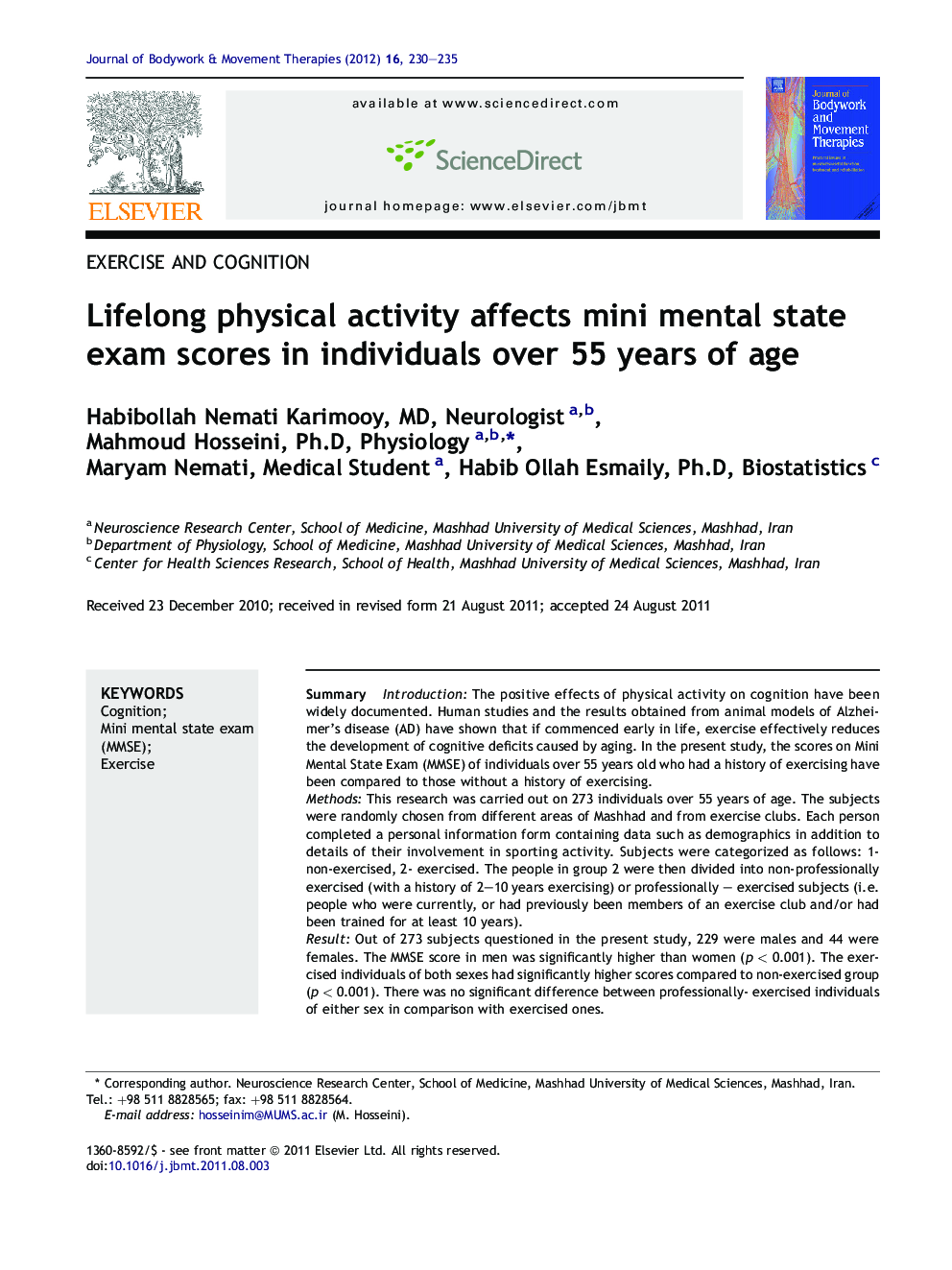| Article ID | Journal | Published Year | Pages | File Type |
|---|---|---|---|---|
| 2619140 | Journal of Bodywork and Movement Therapies | 2012 | 6 Pages |
SummaryIntroductionThe positive effects of physical activity on cognition have been widely documented. Human studies and the results obtained from animal models of Alzheimer’s disease (AD) have shown that if commenced early in life, exercise effectively reduces the development of cognitive deficits caused by aging. In the present study, the scores on Mini Mental State Exam (MMSE) of individuals over 55 years old who had a history of exercising have been compared to those without a history of exercising.MethodsThis research was carried out on 273 individuals over 55 years of age. The subjects were randomly chosen from different areas of Mashhad and from exercise clubs. Each person completed a personal information form containing data such as demographics in addition to details of their involvement in sporting activity. Subjects were categorized as follows: 1- non-exercised, 2- exercised. The people in group 2 were then divided into non-professionally exercised (with a history of 2–10 years exercising) or professionally – exercised subjects (i.e. people who were currently, or had previously been members of an exercise club and/or had been trained for at least 10 years).ResultOut of 273 subjects questioned in the present study, 229 were males and 44 were females. The MMSE score in men was significantly higher than women (p < 0.001). The exercised individuals of both sexes had significantly higher scores compared to non-exercised group (p < 0.001). There was no significant difference between professionally- exercised individuals of either sex in comparison with exercised ones.ConclusionIt is suggested that lifelong physical activity and exercise affects cognitive performance in old age.
